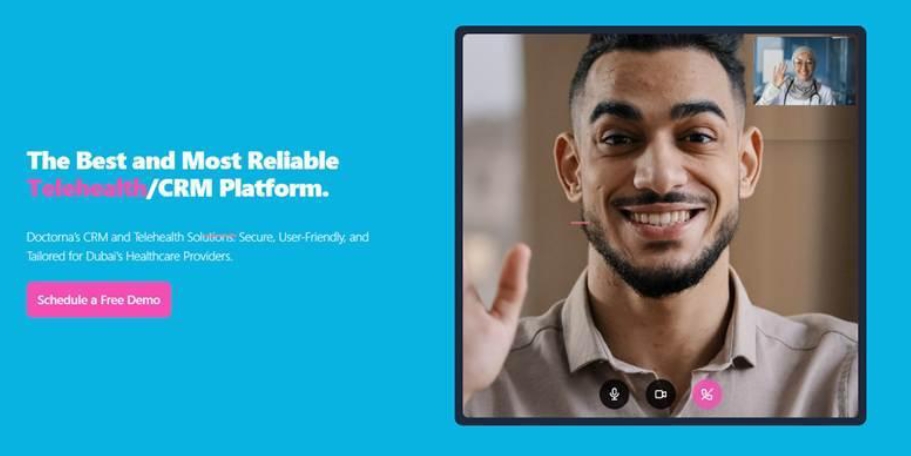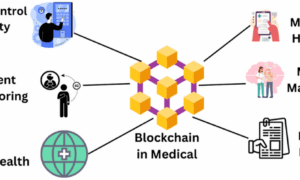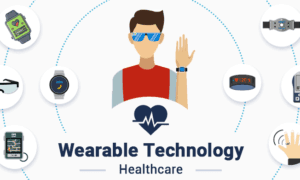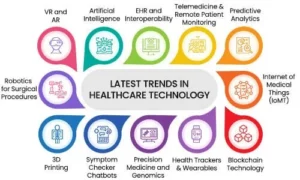In the fast-paced, patient-centric world of Dubai’s healthcare sector, efficiency and personalized care aren’t just ideals – they’re necessities. Many clinics and hospitals are buzzing about healthcare CRM software, and for good reason. But moving from interest to effective implementation can feel like a daunting task.
At Doctorna, we believe in actionable insights. That’s why we’re thrilled to share a condensed roadmap on implementing healthcare CRM for clinics in Dubai. We meticulously outline the journey of healthcare CRM implementation, offering a practical, step-by-step approach that can truly transform your practice.
Let’s dive into the critical stages you need to master:
- Know Thyself: The Essential Needs Assessment
Before you even look at a single software demo, the first, most crucial step is a deep dive into your clinic’s current state. Ask yourself:
- What are our biggest operational bottlenecks? Is it appointment scheduling chaos, scattered patient records, or inefficient billing?
- What frustrates our staff the most?
- Where are we falling short in patient communication and engagement?
- What specific, measurable improvements do we want to see (e.g., reduce no-shows by X%, improve patient satisfaction by Y%)?
Practical Tip: Involve your entire team – from front-desk staff to clinicians. Their daily experiences will uncover pain points that management might miss, making your healthcare CRM implementation truly impactful. This collaborative approach also fosters early buy-in, which is vital for adoption.
- Choosing Your Co-Pilot: Selecting the Right Vendor
Once your needs are crystal clear, it’s time to find a medical CRM system that aligns perfectly. This isn’t just about features; it’s about finding a long-term partner who understands the nuances of the Dubai healthcare market.
Key considerations go beyond just bells and whistles:
- Healthcare Specialization: Does the vendor deeply understand clinical workflows and local regulations (like DHA guidelines)?
- Integration Prowess: Can it seamlessly connect with your existing EHR/EMR, billing, and even WhatsApp API integration for patient communication?
- Scalability: Can the system grow as your clinic expands?
- Support & Training: What level of support is provided, especially post-implementation?
Practical Tip: Don’t just watch demos. Ask for a trial or a sandbox environment where your team can actually interact with the software. Look for a customizable clinic CRM that offers flexibility without excessive complexity.
- The Great Migration: Planning Your Data’s Journey
Your patient data is your clinic’s lifeblood. Moving it to a new patient management software requires meticulous planning to avoid errors and disruption.
Think of it as a carefully orchestrated move:
- Clean House First: Before transferring anything, cleanse your existing data. Remove duplicates, update outdated information, and standardize formats.
- Phased or Big Bang? Decide if you’ll migrate all data at once (big bang) or in stages (phased). For many clinics, a phased approach can reduce risk.
- Security is Paramount: Ensure every step of the migration adheres to Dubai’s stringent data privacy laws.
Practical Tip: Work incredibly closely with your chosen CRM vendor during this stage. Their expertise in data migration healthcare is invaluable. Always, always backup your existing data before starting the migration.
- Tailoring the Tech: Configuration and Customization
An off-the-shelf CRM rarely fits perfectly. This stage is about molding your healthcare CRM to your clinic’s unique operational style.
This involves:
- Setting up user roles and permissions.
- Customizing appointment types and scheduling rules.
- Personalizing communication templates (emails, SMS, WhatsApp API integration messages).
- Configuring billing rules and relevant reporting dashboards.
Practical Tip: Involve your “super users” (staff who showed early aptitude and enthusiasm for the system) in the customization process. Their insights will ensure the CRM truly enhances their daily workflows, preventing resistance later.
- Empowering Your Team: Comprehensive Training
The best healthcare CRM means nothing if your team doesn’t use it effectively. Investing in thorough staff training is non-negotiable for successful healthcare technology adoption.
Focus on:
- Role-Based Training: Tailor training to specific job functions. A doctor’s needs differ from a receptionist’s.
- Hands-On Practice: Provide ample opportunities for staff to practice using the system in a controlled environment.
- Ongoing Support: Establish clear channels for questions and troubleshooting.
Practical Tip: Frame the training around “what’s in it for them.” Show how the medical CRM system will simplify their tasks, reduce errors, and ultimately improve patient care, rather than just being “another system to learn.”
- The Big Day & Beyond: Go-Live and Initial Monitoring
The go-live is exciting, but the work doesn’t stop there. The initial period requires vigilant monitoring to catch and resolve any issues quickly.
- Dedicated Support: Have an internal or vendor support team on standby.
- Monitor Key Metrics: Track system performance, data accuracy, and user adoption closely.
- Gather Feedback: Actively solicit feedback from your staff to identify pain points that need immediate attention.
Practical Tip: Consider a staggered rollout if your clinic is large. Implement the CRM for clinics
Dubai in one department or with a small team first, learn from that experience, and then expand.
Also, celebrate small victories to maintain team morale!
The Journey Continues: Optimization and ROI
Implementing a healthcare CRM is an ongoing journey of digital transformation healthcare. Regular reviews, ongoing optimization based on user feedback and data analytics, and continuous learning about new features are essential. Crucially, consistently measure the ROI by tracking your initial SMART goals – the reduction in no-shows, improved patient satisfaction, or enhanced operational efficiency. Quantifying these benefits will validate your investment and demonstrate the powerful impact of your new patient management software.
Ready to revolutionize your clinic’s operations and patient care in the UAE?
Don’t just adapt to the future of healthcare – lead it. Doctorna offers the best healthcare CRM in the UAE, specifically designed to meet the unique needs of clinics and hospitals in Dubai and across the Emirates.
Visit Doctorna today to learn more, explore our comprehensive features, and schedule a personalized demo. Discover how our intuitive medical CRM system can streamline your workflows, enhance patient engagement, and ensure your practice thrives in the dynamic UAE healthcare landscape.



































